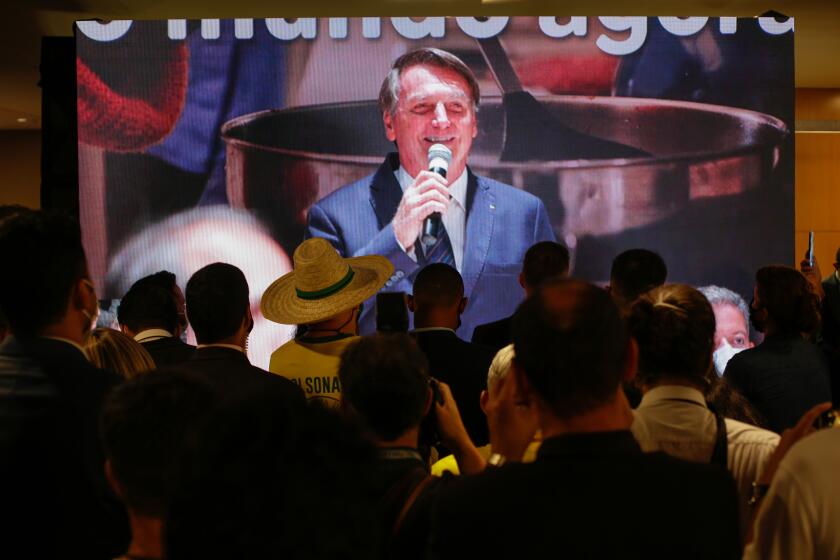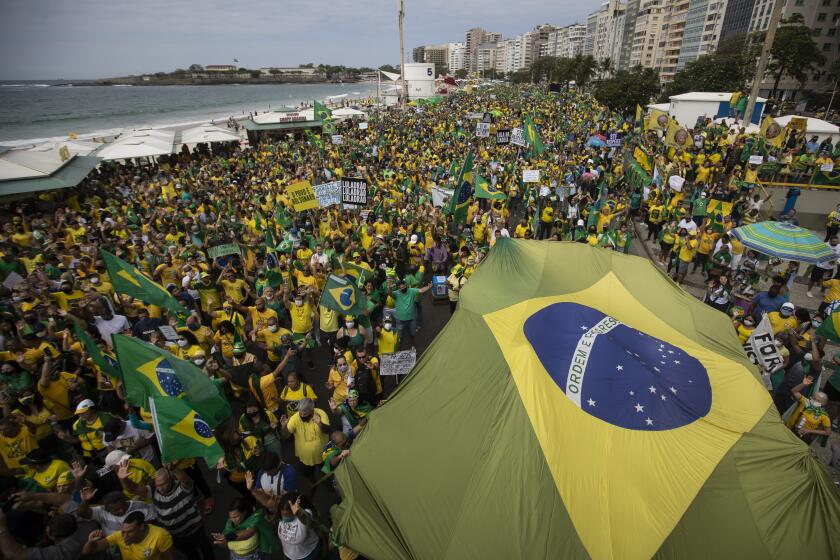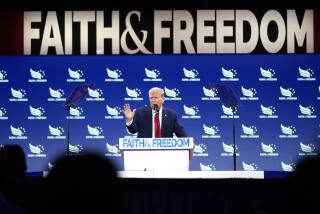The battle for the presidency of Brazil could rest on how evangelicals vote
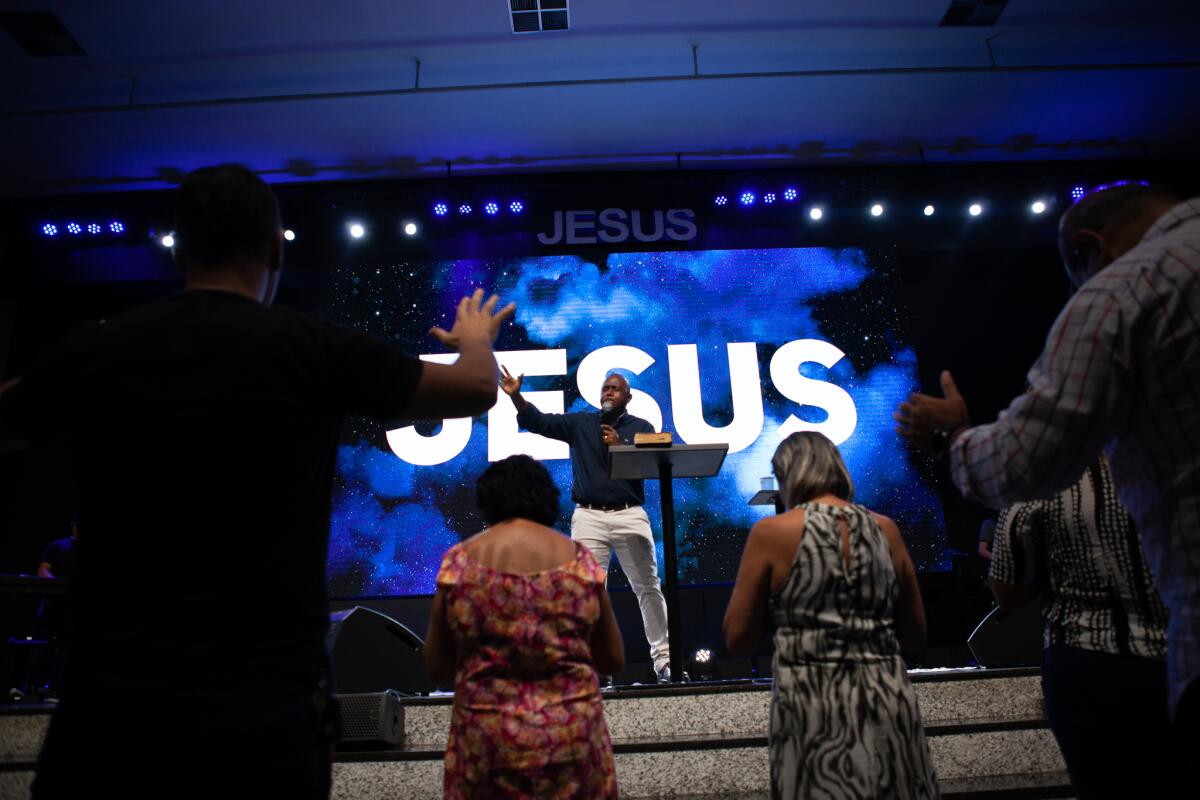
RIO DE JANEIRO — When Brazilian President Jair Bolsonaro won power four years ago, his staunchest support came from the country’s rapidly growing evangelical Christian population, which rallied behind his promises to defend “traditional family values.”
Now, with his approval ratings in steep decline and the next presidential election looming, the far-right populist is once again courting his base and revving up the culture wars.
If reelected, Bolsonaro has promised to fill key jobs with evangelicals, such as the ultraconservative pastor he nominated to the Supreme Court last year. He has attacked recent moves to legalize abortion in Colombia and elsewhere in Latin America, promising to keep Brazil from following the same path.
“I lead the nation in whichever direction you wish,” he told 280 of Brazil’s most influential evangelical leaders at a gathering this month at the presidential palace.
Whether evangelicals can help propel Bolsonaro, 67, to a second term is far from clear, as their support for him has significantly waned. But the church’s power in Brazilian politics is shaping up as one of the central stories in the run-up to the October vote.
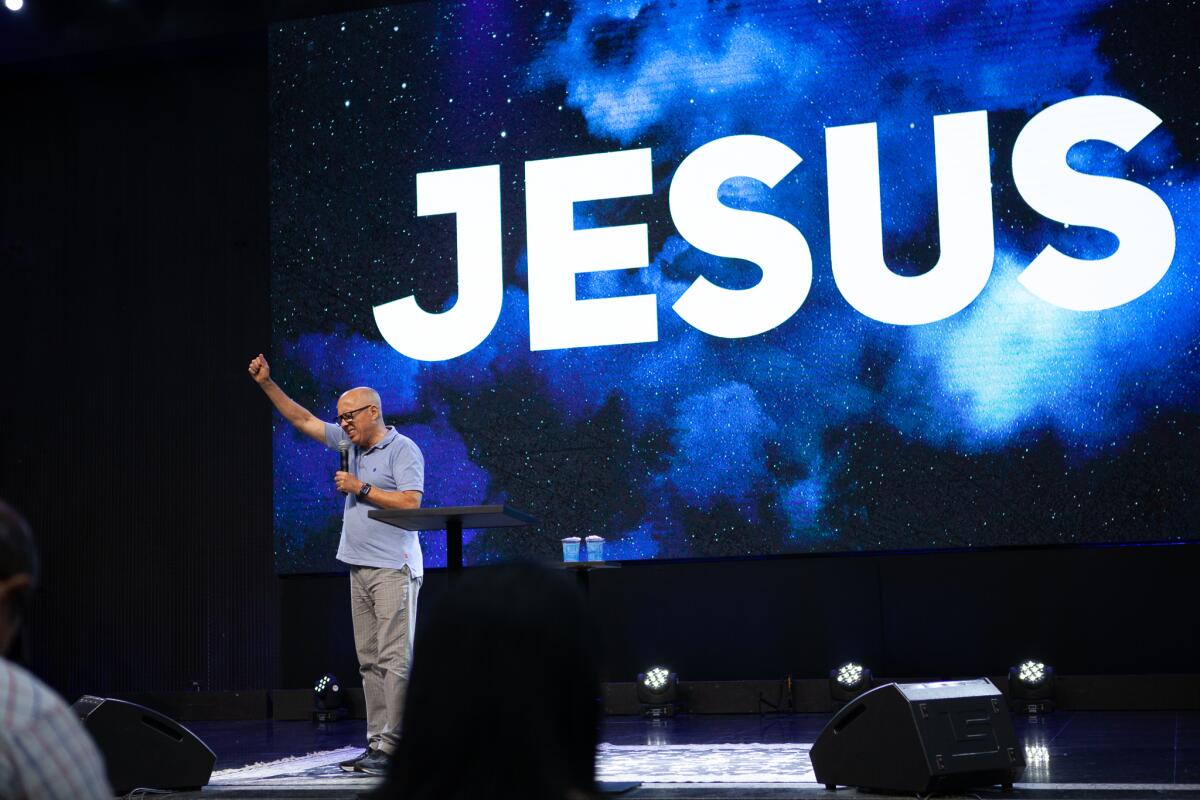
Brazil remains deeply Roman Catholic, but the evangelical church is fast gaining ground. Its followers now make up 30% of the population — double their share two decades ago.
“It’s a voter base that no candidate can afford to ignore,” said Ana Carolina Evangelista, executive director at the Institute of Religious Studies, a think tank in Rio de Janeiro. “It’s growing, it has demands and it wants to be heard.”
Its influence is also shaping the strategy and rhetoric of the current front-runner in the race, former President Luiz Inacio Lula da Silva.
His leftist Workers’ Party has long defended gay marriage and transgender rights. But Lula, 76, has said little about such divisive issues this time around.
“I’m not ashamed to say that, as a father of five children, I am against abortion,” he said in an interview last year. “But, as a head of state, you have to treat the subject as a health issue. It’s a woman’s right.”
He has focused his campaign instead on his plans to revive the economy, create jobs and alleviate hunger.
During his eight-year presidency, which ended in 2011, his success on those issues made Lula wildly popular, including among evangelicals.
From soured friendships to Bannon advising the president, Brazil looks a lot like the Trump-era U.S.
Ten months before the next presidential election, Brazil is more polarized than at any point in recent memory.
It was a golden era of commodity-fueled growth and social spending that lifted tens of millions of people out of poverty.
But people lost faith in the left as Brazil slipped into a recession and a sprawling corruption scandal embroiled the country’s political elite. As the economy crashed, the evangelical church stepped in to help people where the state had failed.
“We do a huge amount of social work,” said Jaime Soares, an evangelical pastor at the Assembly of God in Bonsucesso, a church nestled in one working-class Rio neighborhood surrounded by half a dozen slums. “We are here for those who need a helping hand.”
On a recent afternoon, Soares and two other pastors drove through the narrow alleys of the sprawling Complexo do Alemao slum, winding past cinder-block homes riddled with bullet holes.
“Jesus is calling you, my child,” one of the pastors, Danilo Martins, called out to a boy perched on a motorcycle who was smoking a joint.
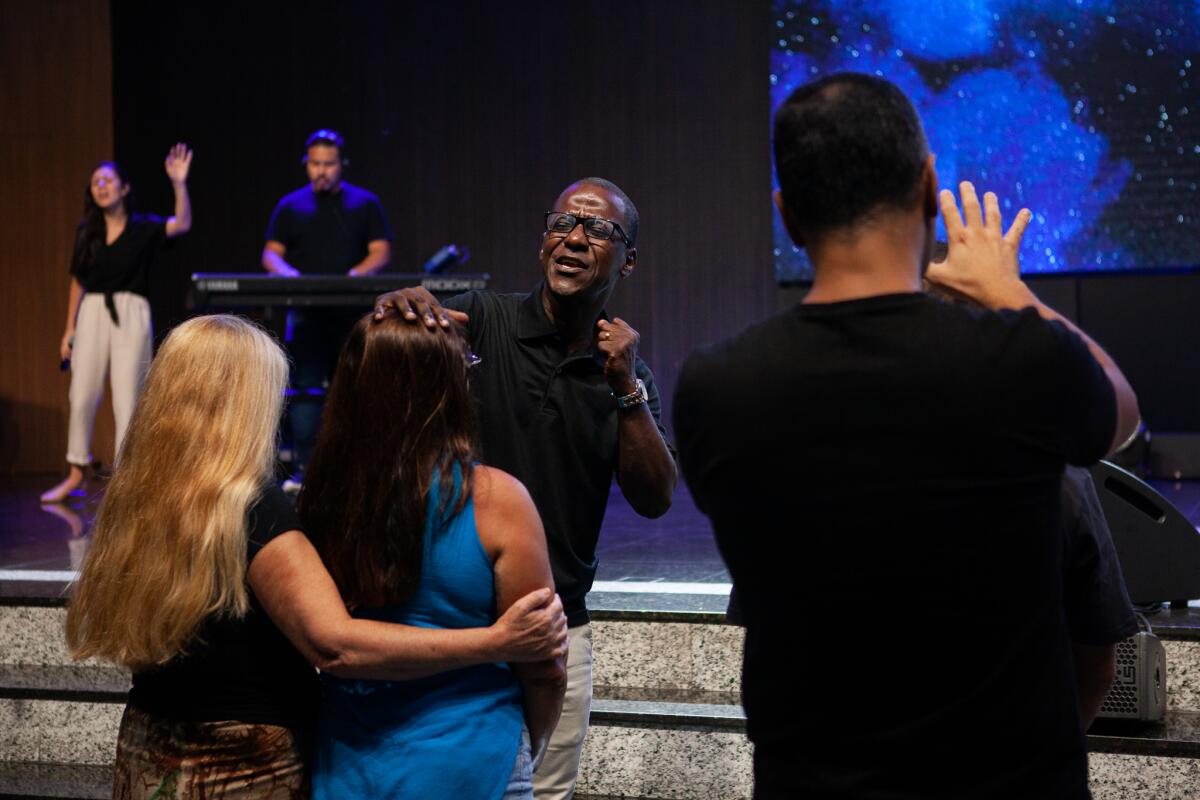
Here, their church gives out food baskets to the poorest and holds music classes for kids. Preachers try to pry teenagers from the clutches of drug gangs and they train the unemployed as seamstresses, hairdressers and mechanics.
“The role of the church here is fundamental, it’s essential,” Soares said. “This right here is the heart of this community. Without the church here — it’s chaos.”
The work has helped the church to amass a loyal congregation of some 7,000 people — and helped build Bolsonaro’s base. Three-quarters of evangelical voters backed him in the runoff that won him the presidency in 2018.
As president, Bolsonaro has been kind to the country’s churches, at one point forgiving $280 million in debt. This month, an audio tape leaked to Brazilian media outlets suggested that Bolsonaro had bowed to the wishes of two evangelical pastors — both informal advisors to the education ministry — and steered school funding to municipalities governed by their friends.
But Bolsonaro has failed to deliver on promises of prosperity. With many Brazilians upset by rising poverty and his handling of the pandemic, his approval rating has plummeted to 31%.
Brazil’s President Jair Bolsonaro is a COVID denier, yet Brazilians reject his misinformation and trust public health workers who are deeply rooted in local communities.
Recent polls of how people plan to vote put support for Lula at 44% — short of the 50% needed to avoid a runoff but far ahead of Bolsonaro’s 26% and seven other candidates all in the single digits.
Evangelical pastors have been stepping up their attacks on Lula, suggesting he is a threat to Christian values and dismissing his appeals to their congregants.
“We know Lula’s track record,” Soares said. “The Workers’ Party doesn’t respect our values.”
Many evangelicals lost trust in Lula after he was jailed for corruption, a conviction that disqualified him from running for president in 2018. The conviction was overturned last year, when the Supreme Court ruled that it was tainted by procedural errors and political bias by the leading judge.
“The church — we’re not all Bolsonaro fanatics,” Soares said. “I don’t wear a T-shirt with his face printed on it.”
But he quickly added: “He is the one upholding our values.”
Still, his advantage among evangelicals has been shrinking. In a poll released last week, Bolsonaro led Lula 38% to 34% in a head-to-head matchup.
Tens of thousands of supporters of Brazil’s right-wing President Jair Bolsonaro rally as he steps up attacks on the Supreme Court and his rivals.
At least one pastor, Paulo Marcelo Schallenberger, has been trying to rally his congregants to make the shift to Lula.
On social media, his tagline is “I’m Christian and I vote for Lula.”
He tours evangelical churches, trying to convince worshipers that Lula is the only candidate who can ease Brazil’s economic pain. And he plans to launch a pro-Lula podcast aimed at evangelicals.
“I felt it was time to take a stance,” the pastor said in an interview.
“You don’t need to support the left to vote for Lula,” he said. “You can just believe in democracy and want a change.”
Vinicius do Valle, a political scientist at the University of Sao Paulo who studies evangelical voters, said that message is likely to sway some of those who supported Bolsonaro in the last election.
“The conservative moral agenda is going to be far less decisive than it was in 2018,” he said. “This election is being defined by themes like jobs and inflation.”
Breaking News
Get breaking news, investigations, analysis and more signature journalism from the Los Angeles Times in your inbox.
You may occasionally receive promotional content from the Los Angeles Times.
Among those still deciding how to vote is Maria Nubia Martins, who lives in Rocinha, a slum overlooking Rio’s famous beaches, and owns a small party supply shop there.
She voted for Lula in 2002 and again four years later. But in 2018, at the urging of her evangelical pastor, she abandoned the Workers’ Party and Lula’s chosen candidate in favor of Bolsonaro.
“I thought he was the change Brazil needed,” said Martins, 53. “But things have only become harder for us.”
She said she will not vote for Bolsonaro again, though she is also not sure she can bring herself to support Lula.
“I haven’t made up my mind yet,” she said. “All I know is that I want change.”
Ionova is a special correspondent.
More to Read
Sign up for Essential California
The most important California stories and recommendations in your inbox every morning.
You may occasionally receive promotional content from the Los Angeles Times.
